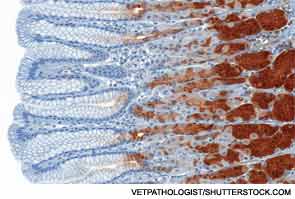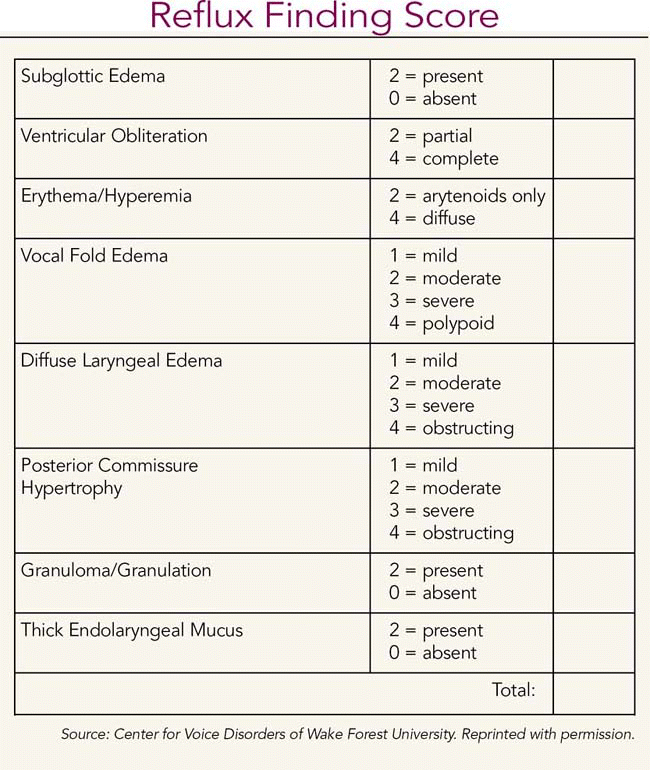Patient Reflux Symptom Index (RSI) and Voice Handicap Index (VHI-10) scores improved following voice therapy.

What Is the Best Test for Pediatric Gastroesophageal Reflux Disease?
Evidence suggests a 24-hour pH probe (pHP) and multichannel esophageal intralumenal impedance testing is superior to pHP alone
Otolaryngologists Research Role of Pepsin in Reflux, Lung Disease
Evidence suggests link between stomach enzyme and chronic pulmonary disease, presents treatment challenge for patients with positive pepsin test

Pepsin Test Can Better Detect Aspiration Reflux, Chronic Lung Disease

AAO-HNSF 2012: Otolaryngologists Can Play a Larger Role in Treating Chronic Cough
Chronic cough affects countless patients worldwide, but hasn’t been a traditional focus of the ENT physician community

Pediatric Extraesophageal Reflux Disease: A Diagnostic Dilemma

Non-Acidic Reflux Explains Lack of Response to H2 Blockers and PPIs
Non-acidic reflux is a major cause of laryngeal inflammation, and patients with this disorder present with a constellation of symptoms that differ from classic gastroesophageal reflux (GERD).

Rating Laryngopharyngeal Reflux Severity: How Do Two Common Instruments Compare?
Laryngopharyngeal reflux (LPR) is considered one of the most complex and difficult-to-diagnose manifestations of gastroesophageal reflux disease (GERD).

Award-Winning Theses Shed New Light on Treatment Modalities, Disease Etiology
Consider this: Over the past two decades, data from both the Surveillance, Epidemiology, and End Results (SEER) program and the National Cancer Database indicate that the survival rates for patients with laryngeal cancer have decreased.
